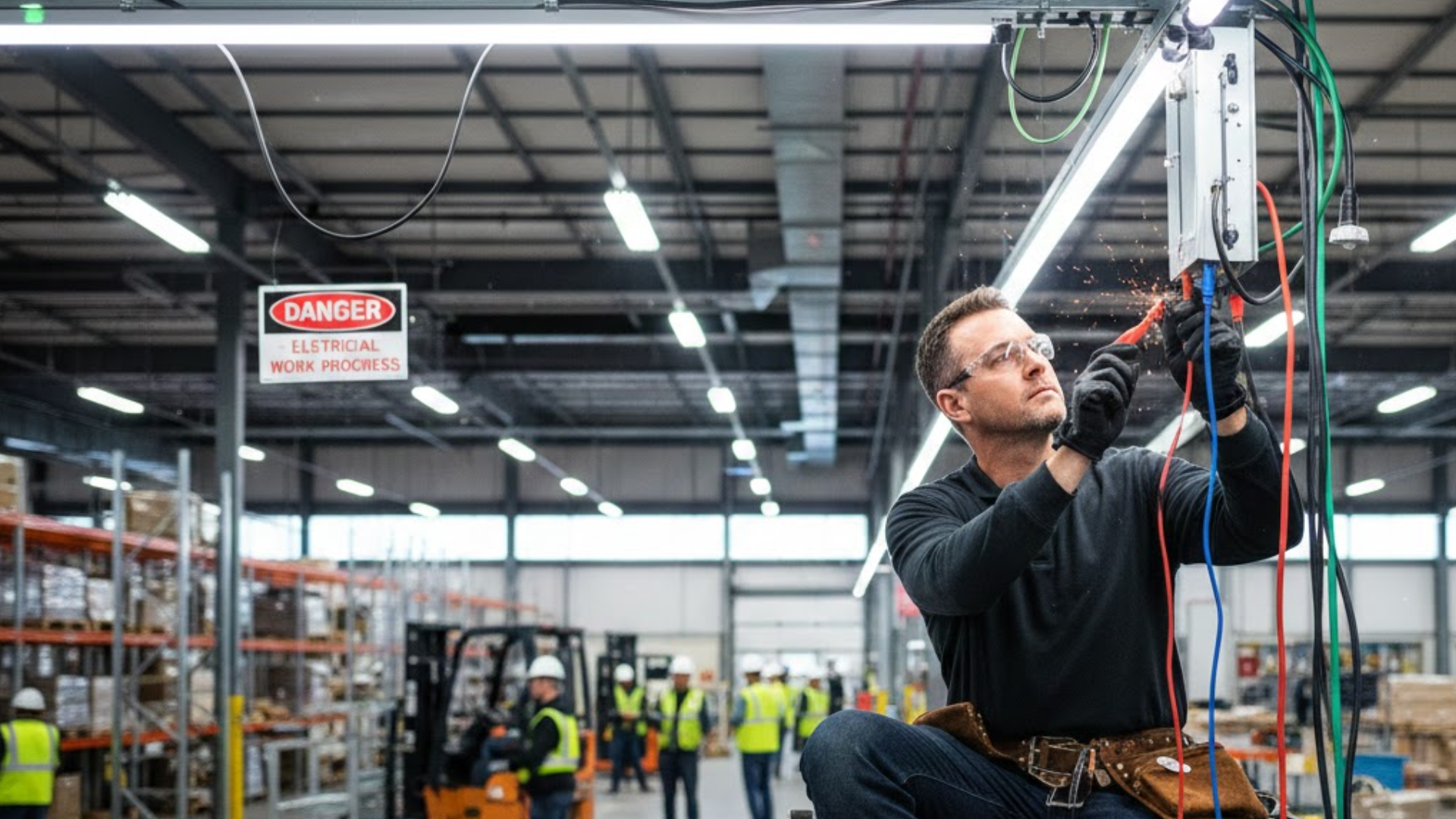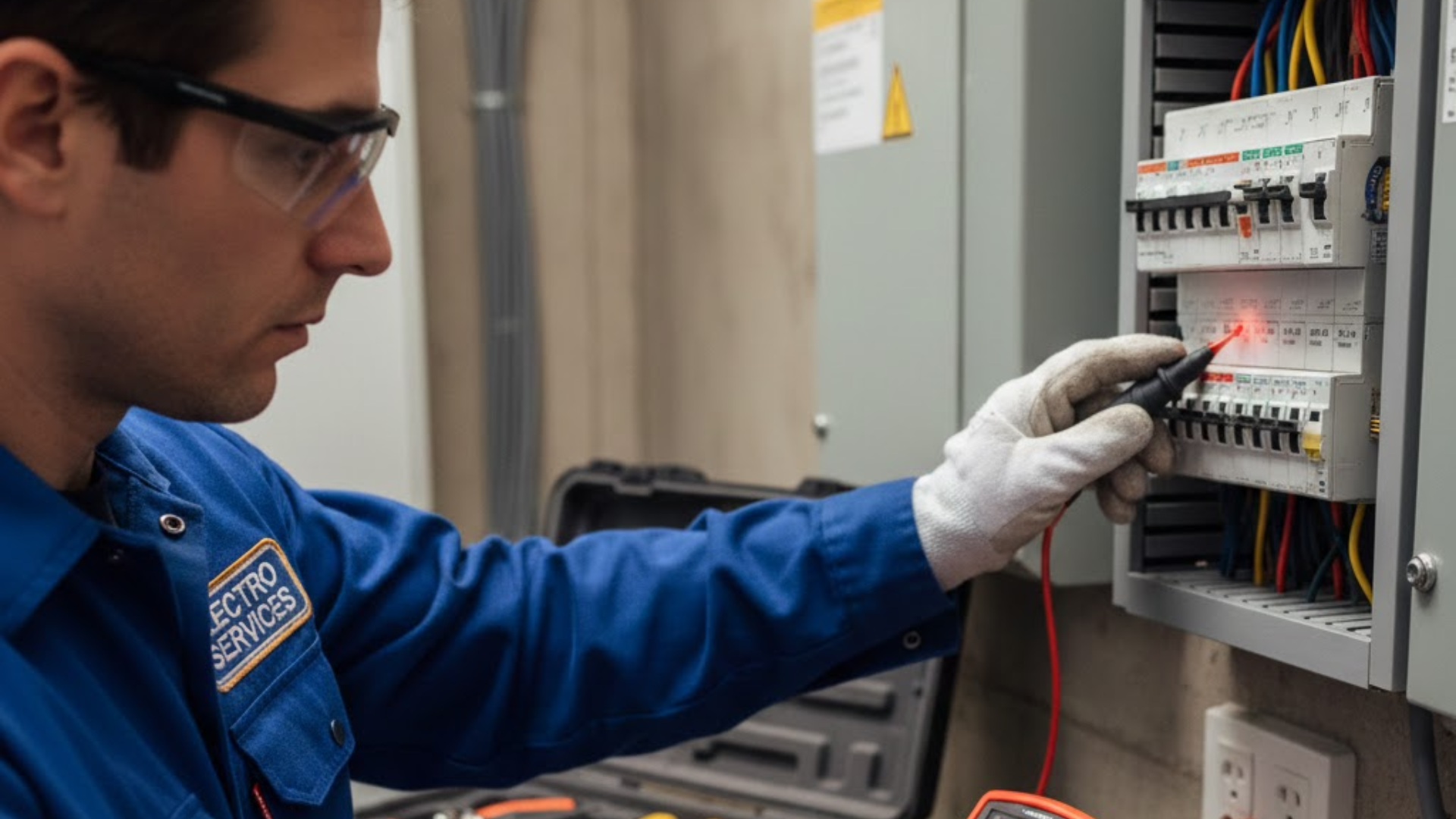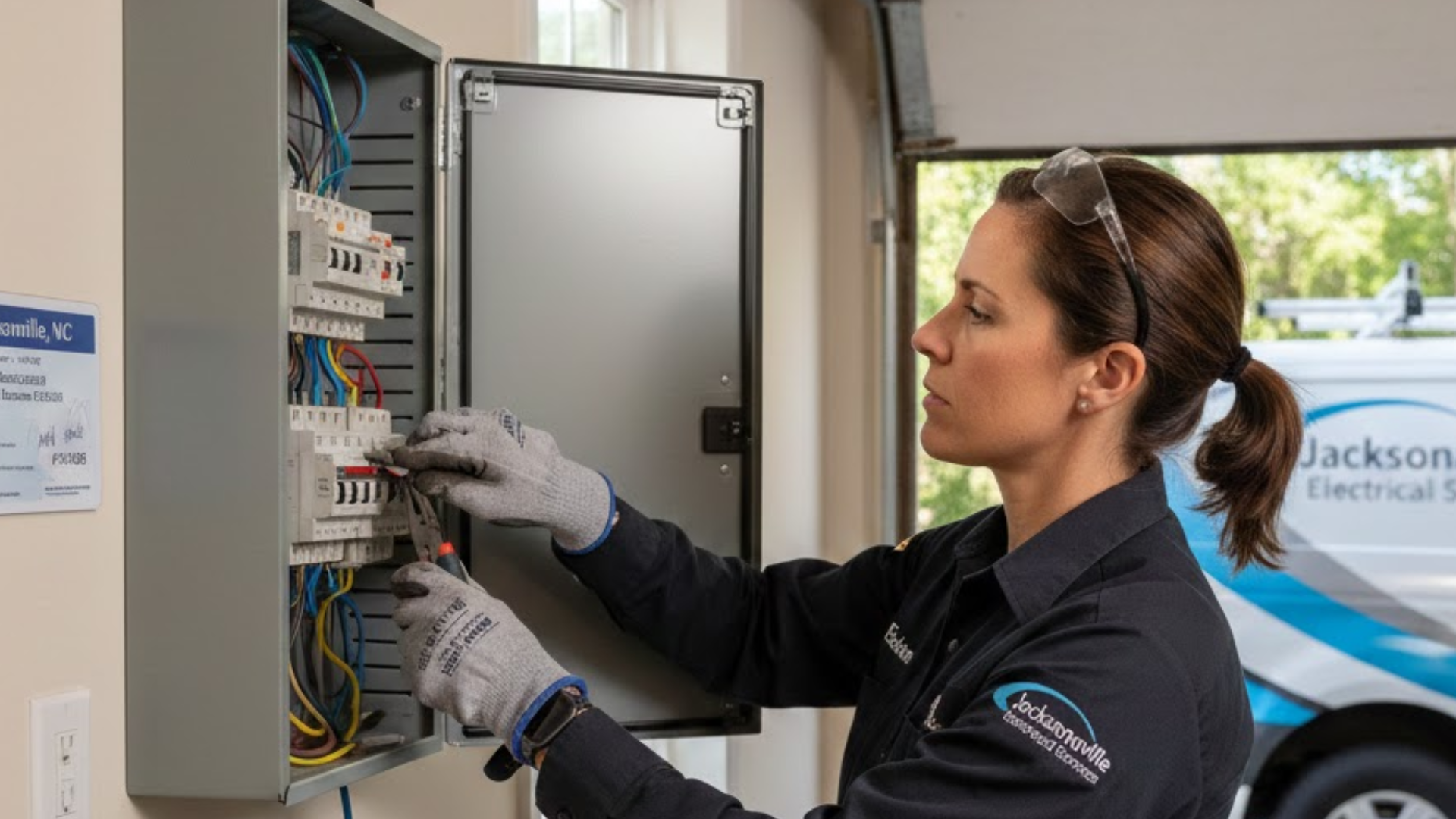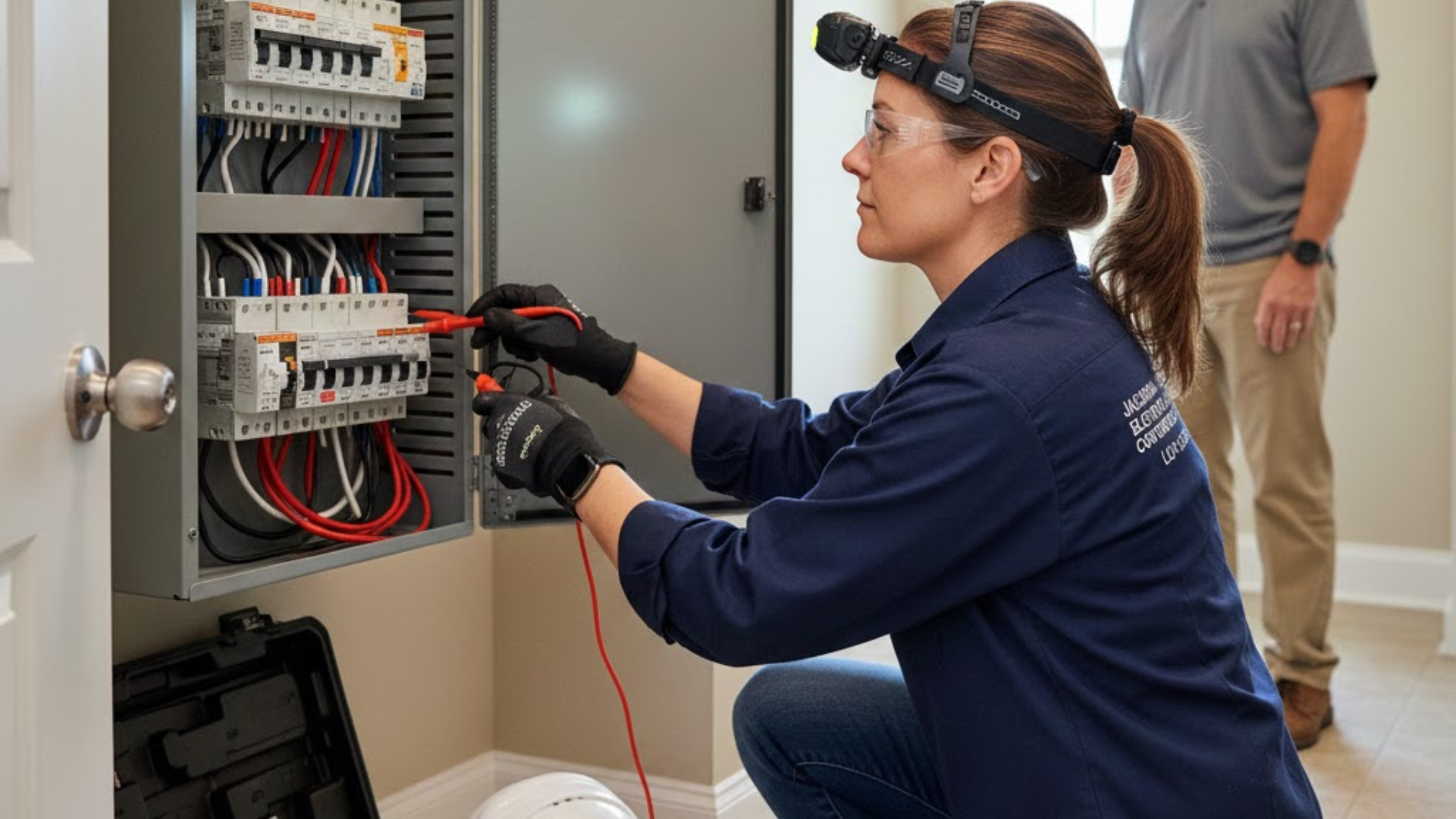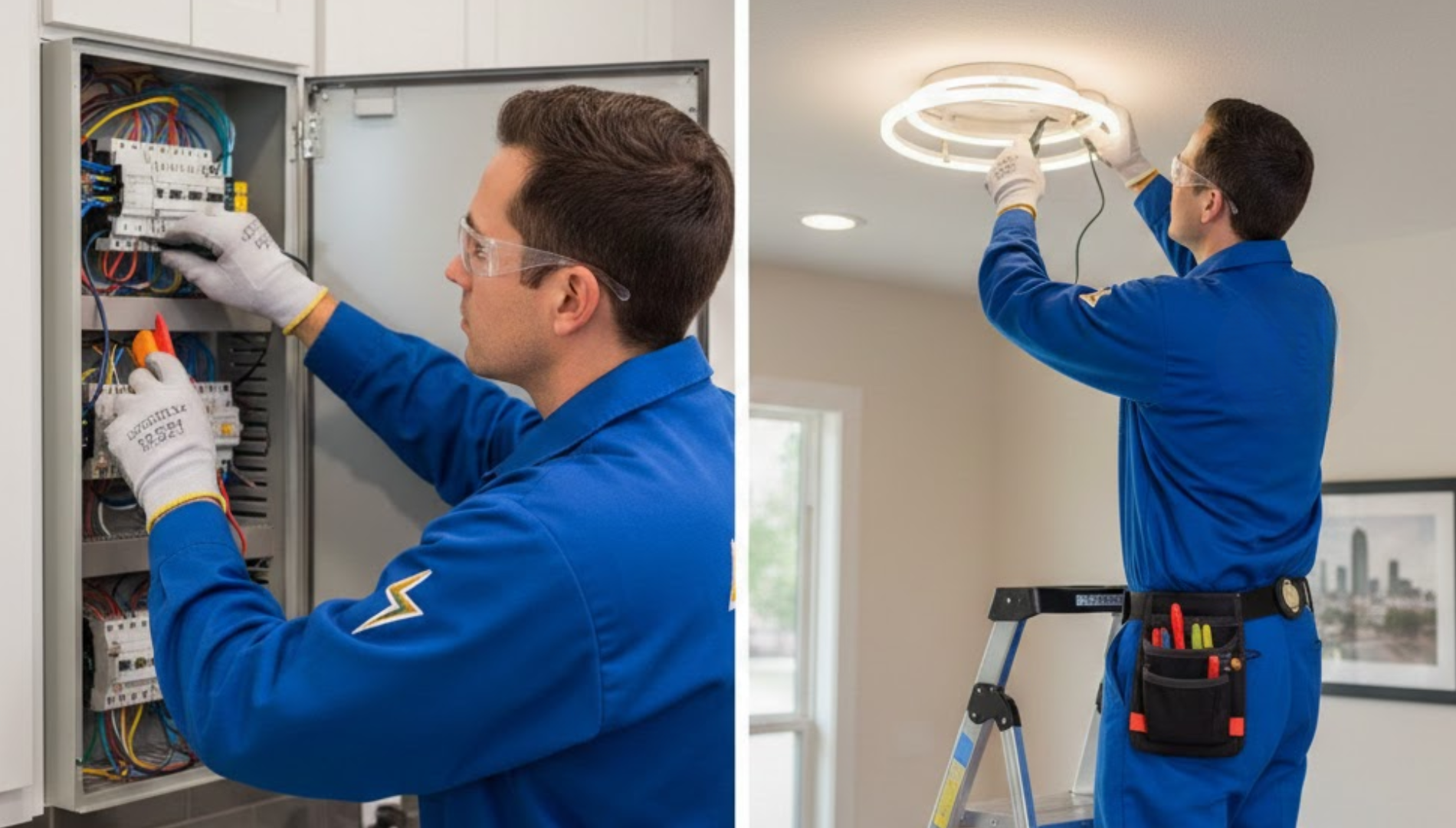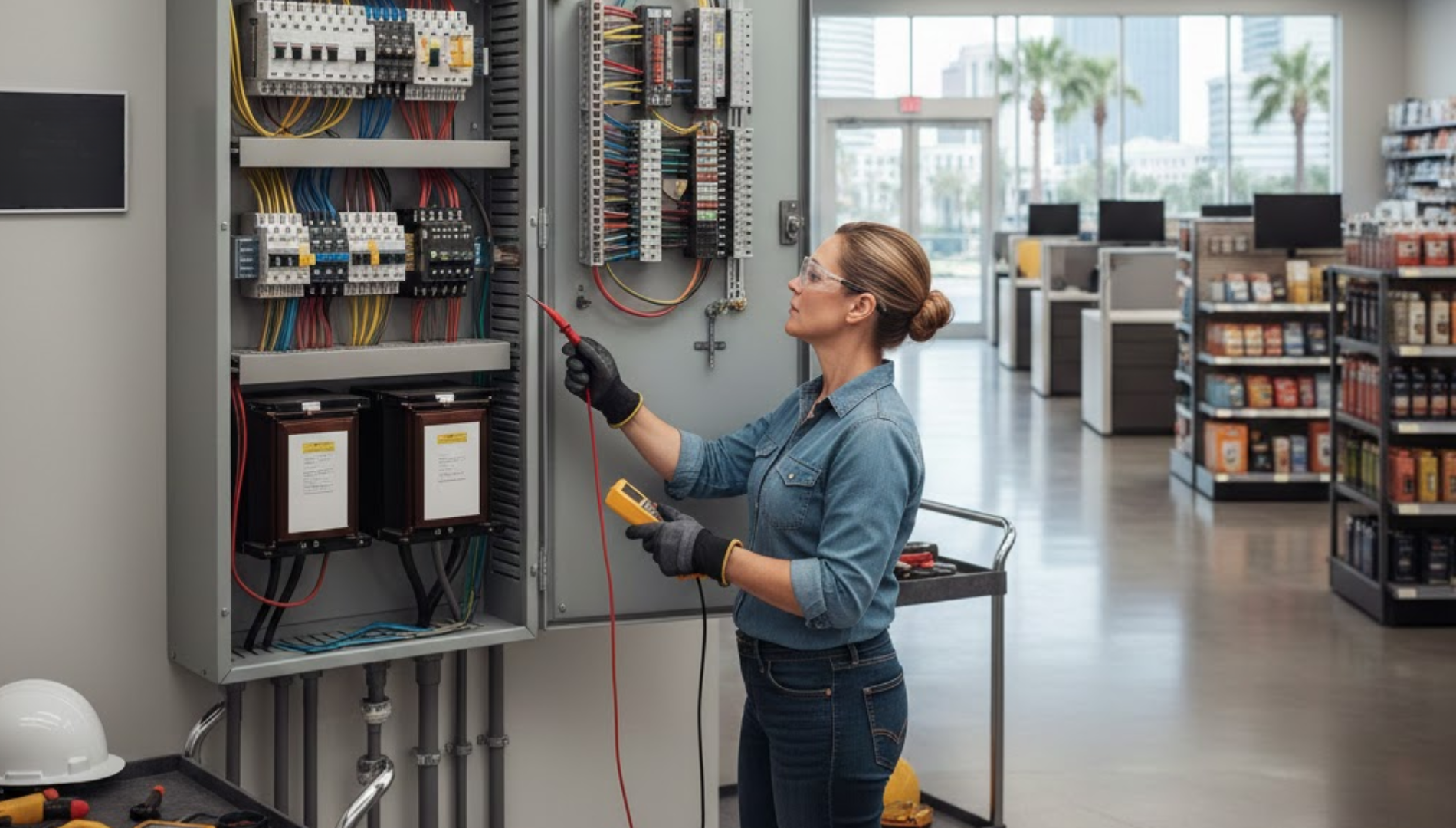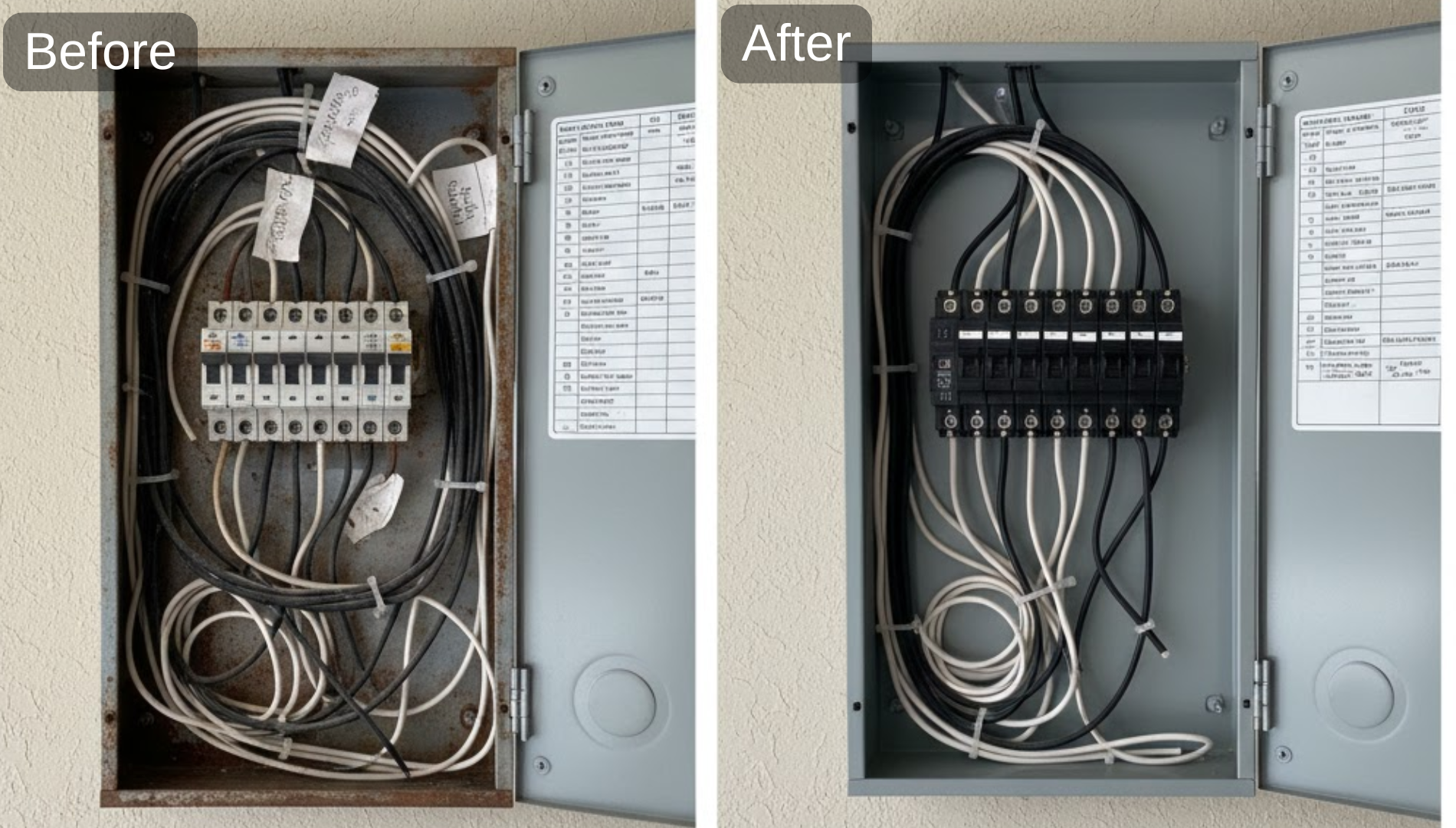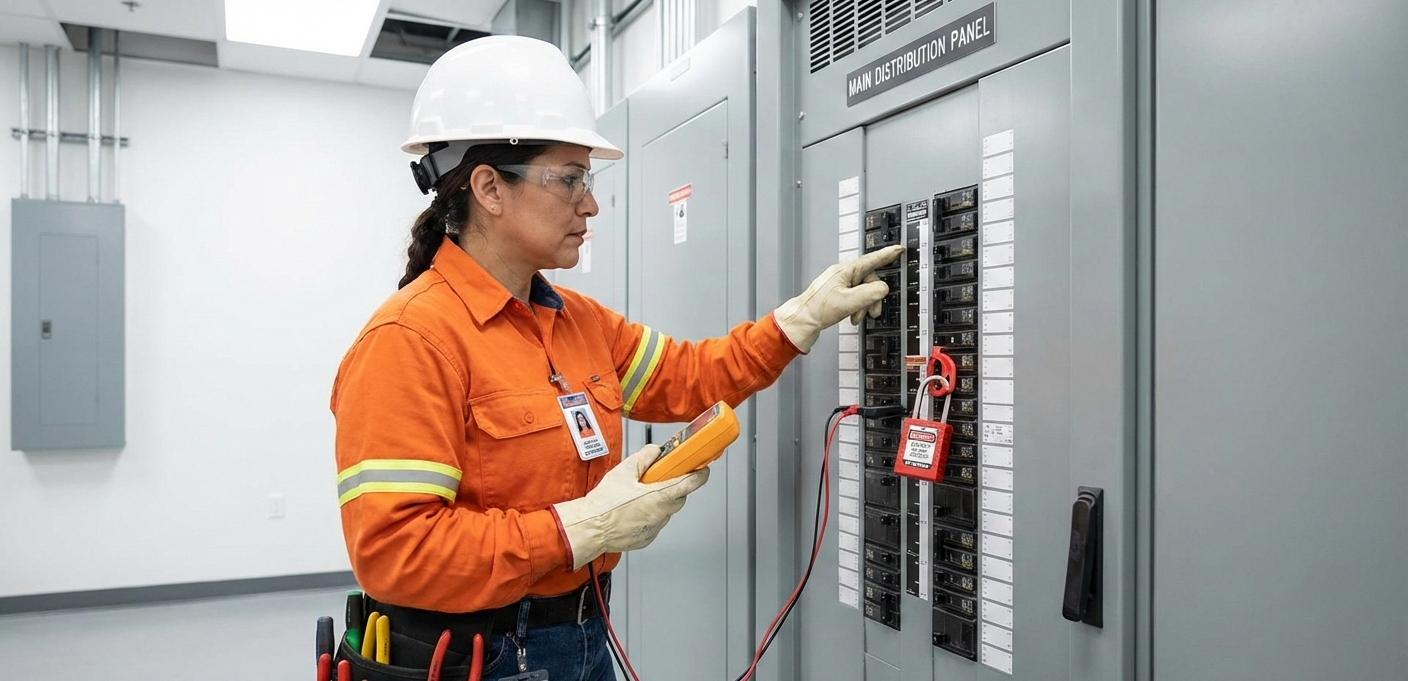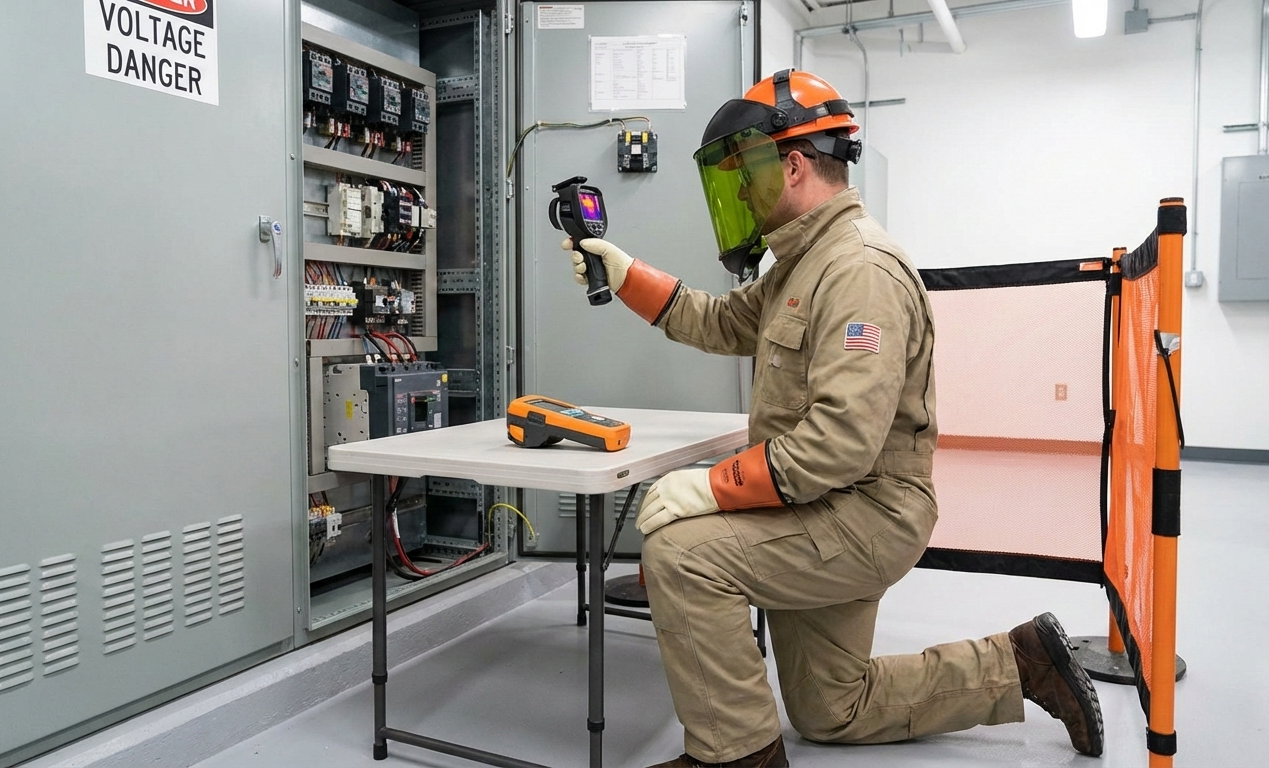Commercial Electrical Installation Grounding: Expert Tips
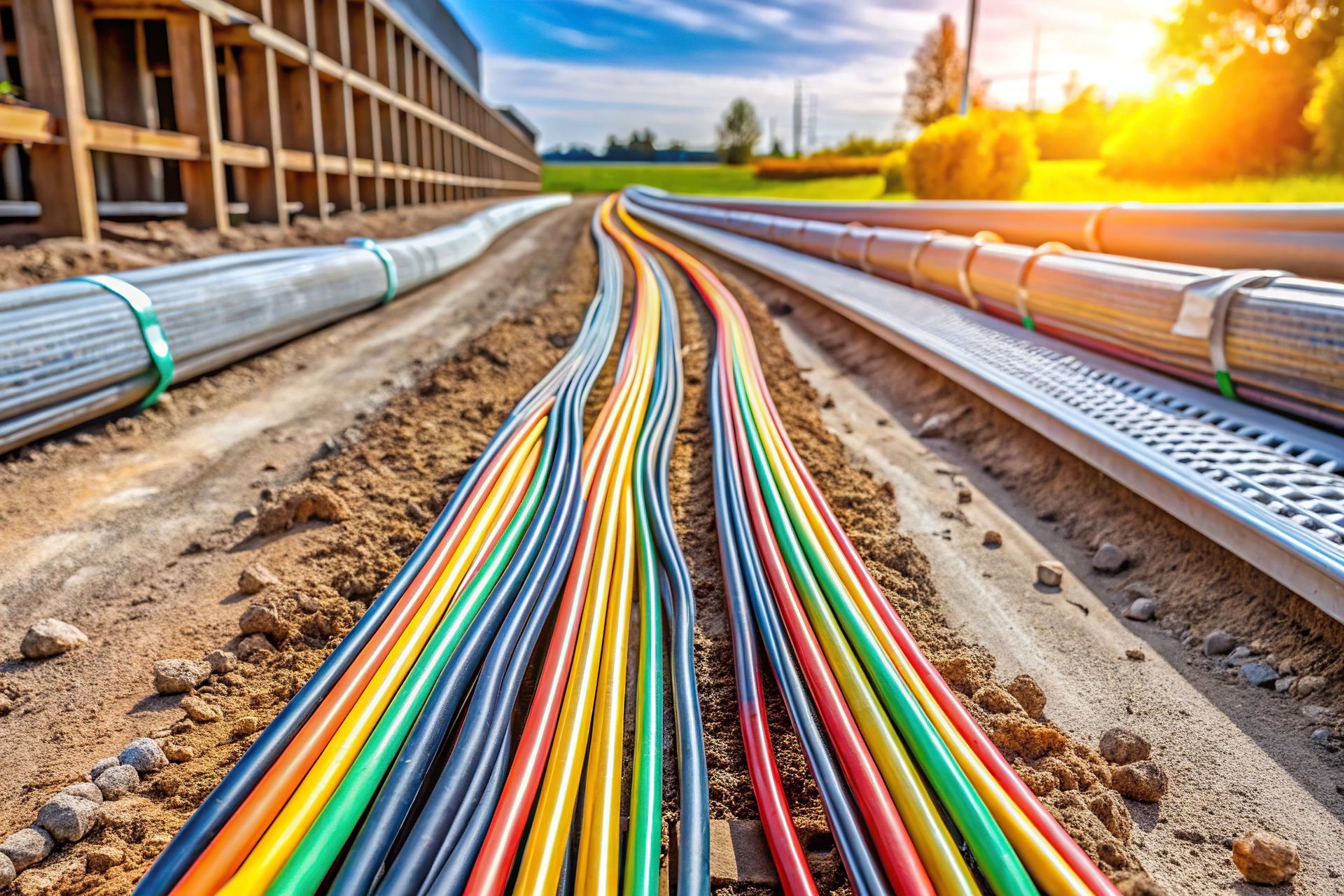
In any commercial space building, it is very important to have a good electrical system, including the building’s electrical system. One key safety measure is electrical grounding. This means creating a safe route for electrical currents to go into the ground if there is a fault or surge. If electrical grounding is ignored, it can lead to serious problems. This could put people's safety at risk, damage electrical equipment, and lead to expensive downtime.
The Fundamentals Of Electrical Grounding In Commercial Buildings
Electrical grounding is very important for safety in commercial buildings. It does more than help the building work well. It also protects the electrical system and, most importantly, the people inside. The process connects electrical systems to the earth. This creates a low-resistance path for any stray currents. This connection stops electrical shocks, protects equipment, and prevents fires by directing fault currents away from the building and its people.
In simple terms, it offers a safe way for extra electrical energy to go away. This protection helps avoid possible dangers. It is important for property owners and managers to understand this basic part of electrical systems in commercial buildings. Doing so will help them keep a safe and efficient environment.
Defining Electrical Grounding And Its Importance
Electrical grounding is very important for safety in any commercial settings building. It creates a low-resistance path that allows electrical current to flow safely into the earth. This helps to reduce dangers from electrical faults. To achieve this, electrical equipment and systems are connected to a grounding electrode, like a metal rod placed in the ground.
The main benefit of electrical grounding is that it protects people and equipment. When there is an electrical fault, currents may flow through unsafe paths, like a person's body or delicate equipment. These unexpected currents can cause serious electrical shocks, damage to equipment, or even fires.
Good grounding offers a safe way for these currents to flow. It plays a crucial role in keeping them away from people and important devices. By providing a clear path to the ground, it helps get rid of any extra electrical energy safely. This reduces the chance of harm and damage. So, electrical grounding is vital for keeping commercial buildings safe and functional.
How Electrical Grounding Works
The idea of electrical grounding is all about how electricity moves. Electricity wants to find the easiest way to get to the ground. Grounding takes advantage of this by creating a low-resistance path for electrical currents that stray. This path usually includes grounding conductors, bonding wires, and a grounding electrode system.
In a typical electrical installation, the grounding conductor connects to the metal parts of electrical equipment and appliances. If these parts become live due to a problem, they can cause serious electric shock. The grounding conductor gives a direct route for the current to go to the ground, instead of through a person who may touch the faulty equipment.
When the fault current moves quickly through the grounding system, it also makes protective devices like circuit breakers or fuses trip to stop the flow of electricity. This quick action helps prevent fires and reduces damage to electrical equipment. Good grounding practices are very important for the safety of people and electrical systems.
Key Benefits Of Proper Electrical Grounding
Proper grounding is important for safety and how well a commercial building works. It helps reduce risks from electrical faults and keeps electrical systems running smoothly. Building owners and managers need to know these benefits of proper grounding to create a safe and effective workplace, as achieving this can be a complex process.
The benefits aren't just about safety. Grounding also protects valuable equipment and keeps operations running without interruption. This shows that grounding is a necessary investment, not just an extra for responsible commercial operations.
Enhancing Safety For Building Occupants
Enhancing safety for people in a building is very important. Good electrical grounding creates a direct path for fault currents to safely go into the earth. This greatly lowers the risk of dangerous electrical shocks. This is especially important in commercial buildings where many people may be at risk.
Following safety regulations and safety protocols when installing electrical grounding is crucial. This makes sure that the system will protect people during electrical faults. Building codes have specific grounding rules. These rules help to reduce the chance of electrical shocks and keep people safe in the building.
Proper grounding also prevents electrical fires. By redirecting surge currents away from electrical wiring and equipment, grounding helps stop overheating. This lowers the risk of fires and keeps everyone inside the building safer.
Protecting Electrical Equipment From Damage
Electrical grounding does more than protect people; it is also very important for protecting valuable electrical equipment. Voltage surges happen when there are sudden spikes in electrical current. These can be caused by things like lightning strikes or problems with the power grid. Such surges can harm or even destroy sensitive electronic parts, leading to expensive repairs or replacements. Check out The Benefits Of Smart Commercial Electrical Installation for more information.
Luckily, a good grounding system helps shield against these voltage changes. It allows extra electrical energy to flow safely into the earth, keeping it away from delicate electronic circuits. This protection greatly lowers the chance of damage from power surges and helps electrical equipment last longer and work better.
Additionally, grounding works well with other safety devices, like circuit breakers. If a problem occurs, the grounding system helps circuit breakers trip quickly. This interruptions stops the flow of fault current, which can help prevent electrical fires or physical damage to the equipment.
Common Grounding Systems Used In Commercial Buildings
Commercial buildings use different grounding systems to keep people safe and protect the electrical design and commercial electrical system. The choice of which system to use depends on local rules, the size of the building, and the type of electrical system in place. Because of this, it’s very important for building owners to talk to licensed electricians.
These experts can look at what a building needs and suggest the best grounding system. This helps make sure the building follows safety rules and identifies any potential issues. Working together like this helps create a strong and safe electrical system. It also reduces risks and offers a better work environment.
Types Of Grounding Electrodes
Grounding electrodes are very important for any grounding system. They connect the electrical system to the earth. These electrodes are usually metal rods or plates buried in the ground. They help safely carry fault currents away from a building’s electrical panels, conduit systems, and commercial electrical wiring.
Choosing the right electrode depends on many factors. Here are some common types:
- Rod Electrodes: These are the most common. They are metal rods driven into the ground.
- Plate Electrodes: These use metal plates buried in the earth. They work well in rocky soil.
- Water Pipe Electrodes: These use existing metal water pipes. Careful planning is needed for long-term results.
- Concrete-Encased Electrodes: These are built into the building's foundation. They offer a very reliable grounding option.
When selecting the best electrode, consider aspects like soil conditions, how easy it is to access, and the overall layout of the building's electrical system.
Grounding And Bonding Practices
Effective grounding goes hand in hand with proper bonding to ensure a holistic approach to electrical safety. Bonding involves connecting all metallic, non-current-carrying components of the electrical system to create a safe pathway for fault currents. This prevents dangerous voltage differences from developing between different parts of the system and ensures that everything remains at the same electrical potential.
Compliance with the National Electrical Code (NEC) is paramount in both grounding and bonding practices, emphasizing the importance of electrical code compliance. The NEC outlines specific requirements for grounding electrode systems, conductor sizes, and bonding connections to minimize risks and ensure a safe installation.
The following table highlights key differences between grounding and bonding:
| Feature | Grounding | Bonding |
|---|---|---|
| Purpose | Protect against electrical shocks and fires | Prevent voltage differences between metal parts |
| Connection | Electrical system to the earth | Metallic components of the electrical system |
| Importance | Safety of occupants and equipment | Prevent electrical shocks from touch potentials |
Understanding these distinctions is essential in ensuring a comprehensive approach to electrical safety in commercial buildings, protecting both personnel and equipment.
Proper Electrical Grounding By Nash Electric LLC
At Nash Electric LLC, our team of skilled commercial electricians knows how important proper electrical grounding is for handling commercial electrical installation needs in businesses. As a leading commercial electrical contractor, we have years of experience and follow safety standards for every project. This way, we ensure that your building has a safe and reliable electrical system.
Starting from the design process, we work on successful commercial electrical installation and regular maintenance. Our team focuses on using the best grounding practices that fit your building's unique electrical needs. We are proud to provide efficient power distribution systems and solutions while keeping safety first. We promise the safety of your occupants and the smooth running of your business.
Conclusion
Good electrical grounding is very important for safety and protecting equipment in commercial buildings. It is helpful to understand what electrical grounding is and how it works. This knowledge can keep people safe in the building and prevent damage to electrical systems.
Nash Electric LLC focuses on providing reliable electrical grounding solutions. These solutions help make commercial properties safer and more efficient. If you want expert help with proper electrical grounding practices,
reach out to Nash Electric LLC today.


